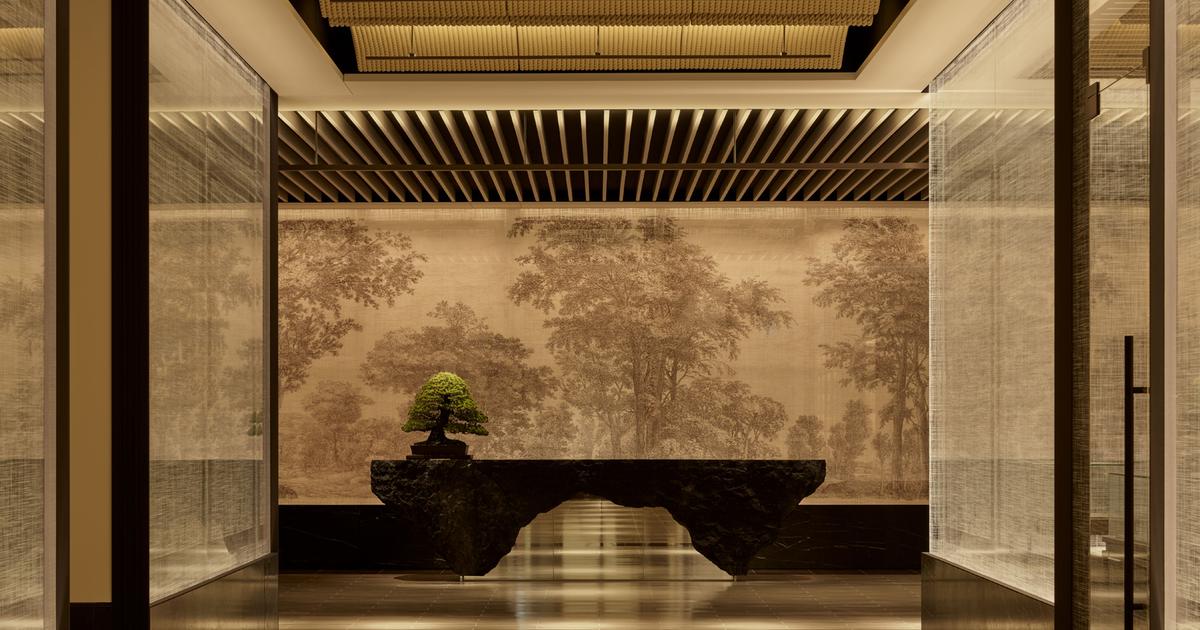Enlarge image
Maurice Jones, 32, in Japan: "Always be polite and reserved"
Photo: Private
Many people dream of living far away, but few actually make those dreams come true. What drives you? How do you make a fresh start abroad? This is what the book "Lunch Break on the Mekong" by SPIEGEL editors Kristin Haug and Verena Töpper is about. You have collected stories from Germans in 28 countries on six continents. This text is an updated excerpt from her book, which was published last year.
In 2016 everything still felt right: together with colleagues I had organized an electronic music festival in Tokyo.
I hardly slept the months before, I commissioned artists, organized workshops and conferences, prepared installations and performances.
MUTEK Festival, which also takes place in Montreal, Mexico City, Dubai, Barcelona, Buenos Aires and San Francisco, was held in Japan for the first time.
It felt like a departure, like our work actually made a difference.
We were inspired, the audience enthusiastic - and although we made a big minus, it was absolutely amazing.
A lot has happened since then.
Before I came to Japan, I studied Asian Studies in Bonn. The year abroad turned into a longer stay. I only had to go back one more time to hand in my bachelor thesis. After a temporary job at the German Chamber of Foreign Trade, I met some organizers and artists from the Japanese club scene, with whom I teamed up to organize music events in Tokyo. It's been more than nine years now. Our last festival just took place in Tokyo in December - Japan had almost no Covid cases, the incidence was below 1.
I play keyboard and guitar, write my own songs and also wanted to get into the music scene in Japan.
At first I thought I could organize festivals to spread my own music - but as an organizer I have far too many other things to do now.
We can now live well off MUTEK.
And we organize events for large companies.
These are, for example, car manufacturers who want to impress their customers with futuristic audiovisual installations in order to create an emotional bond with the brand.
Our goal is to transform Tokyo nightlife with our events.
We organize experimental, futuristic events where we give young artists a platform.
They hardly have a chance in the established clubs because they are hardly connected to the old cliques.
After almost ten years in Tokyo, I moved to Montreal in August to do a PhD there.
From here I continue to take care of the festivals.
During the pandemic, I was unable to return to Japan for nine months despite having a visa, residence permit and work permit.
In a country where foreigners are denied fundamental rights in times of crisis, despite their legal status, I could not imagine a long-term future.
Even before that, I often didn't feel like going to Japan anymore and wanted to go back to Europe.
It was then that I realized: No matter what I do, I will always remain a foreigner here.
Even professors who have lived in Japan for 30 years, have a Japanese wife and speak the language fluently will always be the white noses.
I had given everything to integrate in Tokyo: learned the language, submitted to the hierarchies and the unwritten laws.
And there are many: For example, you shouldn't drink or eat in the subway, and you shouldn't blow your nose in public.
And never be loud.
The Japanese don't ring your doorbell if you're making too much noise at a party, they'll call the police right away.
The rules themselves aren't that bad, but the Japanese just accept them, even if they make no sense.
This also applies to hierarchies, which are rarely questioned.
I've come to accept that I can never be an equal part of Japanese society.
After all these years still no credit card in Japan
It was particularly difficult for me to have to submit, to be polite and reserved all the time.
It took me quite a long time to learn when, as a foreigner, I should conform to hierarchies and when I might get ahead if I didn't.
Subordination doesn't get you any further if you're organizing events and aren't seen as an equal discussion partner.
The more I tried to adapt, the clearer the differences became.
I also noticed this in interpersonal relationships.
It takes a long time to befriend someone in Japan.
People are reluctant to share their feelings because they don't want to burden others with them.
I've since made good Japanese friends, but it took years.
What also annoys me is the racism.
The Japanese divide into good (from Europe) and bad foreigners (from Southeast Asia).
There is also everyday racism, for example as a foreigner you have to pay a kind of surcharge when you rent an apartment.
That's what the Japanese call foreigners' insurance.
Also, after all these years in Japan, I still can't apply for a credit card because, as a foreigner, I could just run away.
It also took me several months to get a cell phone contract - I only have it because I agreed to pay more.
The role of women is also very traditional.
Japan is still a long way from #metoo and we don't even need to talk about LGTBQ.
Rework is also a big issue, some people work 100 hours a week here.
It is called karoshi when someone dies because he has worked so much.
Overtime is usually not paid here, but is considered a gift to the company because you got a job there.
I work a lot too, but it's different with creative people, they live in a kind of parallel society where the line between work and pleasure is blurred.
Despite everything, the quality of life in Japan is quite high.
It starts with the food.
Even the cheapest Japanese restaurants are of very high quality.
And you can rely on most things: the trains run on time, the shops are open around the clock, the authorities are very meticulous but don't make mistakes.
I see my job with different eyes now.
We are also now trying to send many Japanese artists abroad and to bring in artists from other countries.
I now see myself more as a mediator between cultures.
And since then it has been easier for me to be in Japan.
I now also know when a yes is a yes-yes, a maybe-yes or a no-yes.
Life in Canada is very good so far.
Through my work with the MUTEK Festival, which originally comes from Montreal, I've already found a good network and a great circle of friends here.
So I felt at home pretty quickly.
My apartment is about half the price of Tokyo and three times the size.
It's pretty cold right now, but I don't mind.
I haven't had a real winter in Japan for the past ten years.
I like the cold, the snow, the fresh and clear air, the blue sky.
And the light creates a special atmosphere.








/cloudfront-eu-central-1.images.arcpublishing.com/prisa/7UCV6TUGBZBLJAIA776O4SOCN4.jpg)
